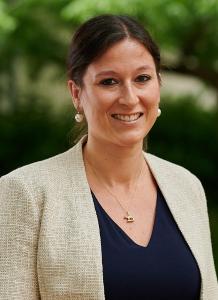Participants among others included, EU Ambassador designate Gabriele Visentin, German Embassy Chargé d'Affairs Dr Andreas Radtke, ASPI Executive Director Justin Bassi, National Security College Deputy Director Nicola Rosenblum, Rheinmetall Defence Australia Senior Program Manager Hydrogen Dr Judith Reinhard and AIIA National Executive Director Dr Bryce Wakefield as well as ANUCES Director Anne McNaughton.
The discussion explored German-Australian national and international security concerns and potential areas for future cooperation. There was the general consensus that in view of the current global security climate, with a war in Ukraine and recent developments around Taiwan as well as the growing question of future energy security, a joint approach of like-minded nations is needed to provide an alliance that can preserve the international rules-based order and can demonstrate to developing nations that it is a reliable partner.
Five other key take-aways from the debate included:
- Germany, is a ‘soft-power superpower’ that can often make a greater impact through trade than through defence
- From an outsider’s perspective, Germany has undergone a huge change in attitude in its relation to hard power, but can and needs to do more, especially in regards to its approach to the question of economic versus security concerns.
- Australia and Germany are greatly underestimating the amount of influence Germany could have in the Indo-Pacific region, as a stronger engagement on its part change the sometimes promoted narrative of Western nations being interested in the region for their own geopolitical interests.
- Australia currently invests more in Germany than Germany invests in Australia
- Australia could be a major player in the renewable energy market and could make green hydrogen its greatest energy asset, contributing to future energy security by ‘exporting sunshine’
We highly appreciated the participation and valuable insights of our guests and hope to continue this important debate on future occasions.



